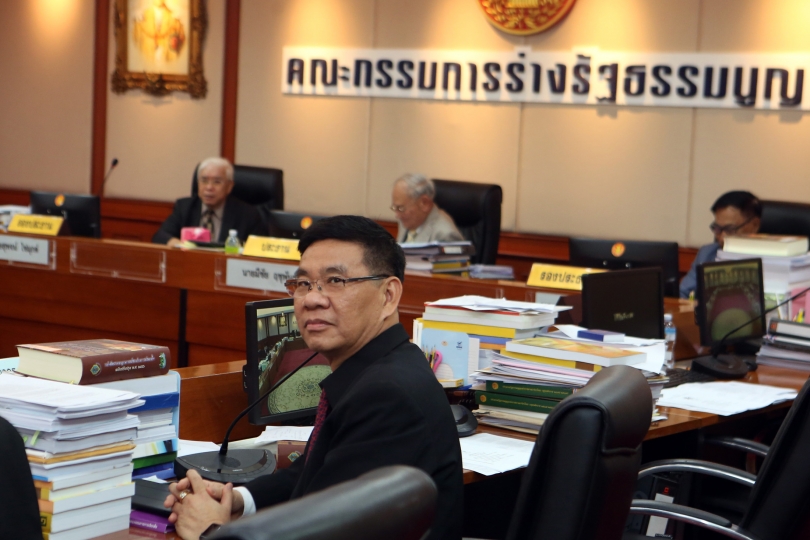CDC advocates ‘middle path’ on political parties

Bill will rein in bogus group but be lenient to allow new parties.
THE CHARTER drafters have said that they will take the “middle path” in writing an organic law in the new charter, which will make it easy for ordinary individuals to set up new political parties.
When writing the Political Parties Bill, the Constitution Drafting Commission (CDC) will set certain conditions to prevent parties being formed with the intention of getting subsidies from the Election Commission, CDC chairman Meechai Ruchupan said yesterday. However, these conditions should not make it too difficult for people to set up parties, he added.
Meechai went on to say that the drafters would gather opinions from relevant groups on the matter.
“The organic law on the formation of political parties must adopt the ‘middle path’ principle. In order to ensure the birth of ‘people’s parties’ we should set rules that are proper and practical,” Meechai said.
For instance, the chief drafter said, the requirement for the minimum number of party members from each geographical region would not be too high.
Meechai also allayed concerns that the CDC might reduce the number of election commissioners from the current five, following news that it was studying the structure of India’s election commission, which has only three election commissioners for a country with a population of 1 billion.
“The study is not aimed at adjusting downward the number of EC members, so the EC members should not be worried,” he said.
Democrat Party deputy leader Nipit Intarasombat said yesterday that if they wanted to adopt the Indian structure, the drafters should adjust it to suit Thailand’s problems and culture.
For instance, he noted, the vote-buying problem in India is not as severe as in Thailand, and it is the world’s largest democracy with a caste system that is still widely practised.
Meanwhile, Meechai said yesterday that he was not worried about the possibility of the National Legislative Assembly (NLA) maintaining in the Constitutional Court that selected senators be given the power to nominate prime ministerial candidates in addition to voting with MPs in the selection of government leader.
Debate over Senate
“I believe the court will rule in a careful and straightforward manner,” Meechai told reporters.
The court is reviewing the CDC’s revisions of the draft constitution to complement the result of last month’s referendum, in which most voters agreed to let senators vote with MPs in the selection of a prime minister for five years after the next Parliament convenes for the first time.
The CDC has maintained that the senators, to be appointed by the ruling National Council for Peace and Order, would only have the right to vote while the NLA, which had proposed the additional referendum question, insisted that they meant to have senators able to nominate PM candidates as well.
NLA president Pornpetch Wichitchol-chai said yesterday that the assembly had submitted its written explanation to the court, which was the same as the document given to the CDC. Pornpetch said he did not think the court would summon NLA representatives to testify in person about this matter.
RELATED
